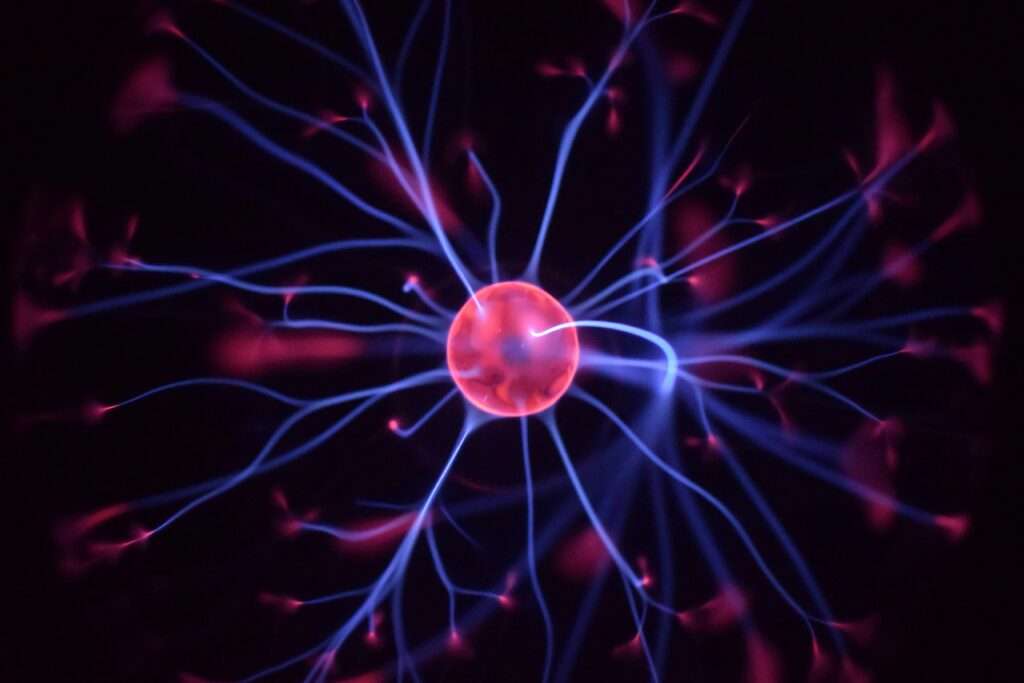Oh the delicious joy of finally —finally— being able to focus, fully and precisely, letting my brain soar, free and joyful, following its own path to its own delightfully logical conclusion, writing it all down without stopping to think or edit or self-censor.
This feels so amazing. I feel all-powerful, omnipotent. I can practically feel the synapses sparking, making connections never made before in the history of synapses. This could go on forever and I’d be happy.
How can this be wrong? I’ve spent half my life desperately trying to settle down to do one thing at a time, just one thing, not 42, and now when I’m finally there, they call it “hyperfocus” as if it were a bad thing.
But is it really?
Is “hyperfocus” so different from that state of “flow” that possesses artists, musicians, and genius inventors? Why is flow desirable but hyperfocus, not?
Is hyperfocus just another way of saying “perseveration”? Some sources say yes, but I’m not so sure about that. I’ve done both, and perseverating feels different from what I’d call hyperfocus. There’s a sense of futility as you keep doing the same thing over and over, even though you know you’re not making any progress.
Like me endlessly tweaking a colour on a web page when it was completely acceptable to begin with, and I’ve long passed the point of diminishing returns.
Hyperfocus is different. There’s no futility. I just get so fully absorbed in what I’m doing that the rest of the world falls away. I lose track of time. Hours go by without my realizing it. I forget to stand up. I forget to eat. I even forget to pee. Interruptions trigger a tidal wave of rage (repressed, I hasten to add). I stay up way past anything like a reasonable bedtime, sometimes all night.
Unlike perseveration, this state is usually productive, often unbelievably productive.

Hyperfocus also often seems to follow a struggle, be it a creative struggle to say what I mean, a struggle to understand research materials, or a struggle to engage and focus.
Engaging requires interest, and if I’m not interested enough, the only other option is fully disengaged. My brain doesn’t have a dimmer switch. It’s on or it’s off, with nothing in between.
When I’m not interested, there is no force on earth that can make me interested. I can force myself to sit in the chair, but can’t force myself to actually do anything. I’ll sit there for an hour literally staring at a blank screen, filled with an inchoate dread that makes my body feel heavy, like deep fatigue or the flu.
My brain also doesn’t recognize the idea of “important” as a good reason to do anything. in order to get fully engaged, I need to be interested. An interest-based nervous system is one of the traits associated with ADHD, and it’s the reason most productivity advice is, well, counterproductive. Prioritizing a to-do list by importance and urgency, for instance, is impossible for me: everything feels both urgent and important, which is overwhelming, and if I’m going to do any of it, it has to grab my interest.
Then, when I do become interested and fully engaged, I may journey all the way into the land of hyperfocus. Am I really supposed to stop before I get there just so I can get to bed earlier?
Not a chance.
When hyperfocus takes over after a long struggle to get myself interested enough to engage, I welcome it and ride the wave for as long as it lasts, knowing that at some point it will cough me up onto shore again.
Oddly, some background part of my brain is aware that I’ve lapsed into hyperfocus. That part of me knows I should be going to bed or stopping for supper, but the rest of me is so relieved to finally be making progress that I don’t care.
Even that background part knows I simply can’t work effectively and reliably during “normal” working hours, in daylight, between 9:00 AM and 5:00 PM. That part also knows that if I could, I most certainly would.
Even that part can see that it makes sense to draw on the energy of hyperfocus to propel me through the work, even when it also propels me right through the night. And even though I know I’ll crash and burn the next day.
I’ve learned to quiet the voices of judgement, the “shoulds” and the “what’s-wrong-with-yous,” so I can just get on with it.
When I can see it coming — say, when I’m doing website work, which inevitably leads to hyperfocus — I plan for it. I clear my calendar for a few days. I turn my schedule inside out, staying up as late as I need to and sleeping in.
It’s a shitty way to live when the rest of the world is on daytime hours, and it’s also a really quick path to burnout. So I don’t do it often, and I’m learning to be careful and intentional about using an upside down schedule to get things done. Inviting hyperfocus into those quiet overnight hours is the best way I know of to create enough spaciousness for a truly deep dive.
Some would call hyperfocus an ADHD “superpower.” Personally, I wouldn’t go that far, but I must admit that the experience of hyperfocus — if indeed that’s what I’m experiencing — is exhilarating, especially when it’s productive and fruitful, and leads to accomplishing something I couldn’t do otherwise.

